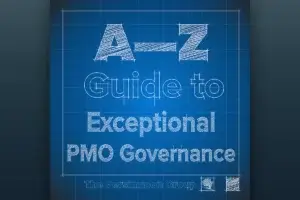A Lesson in Authentic Leadership: How to “Show up” in a Crisis and Emerge a Stronger Leader
I had recently been promoted to leader of a $2 billion business. Given the size of the promotion, I was struggling a bit with my confidence. But I was learning, and this particular day had been a good one.
Then shortly after eating dinner, I received a phone call at home from one of our plant managers telling me that one of our processing units had exploded.
This was the start of one of my crises.
There are several definitions for “crisis” when you research the term. A few that surfaced in our research include:
- A time of intense difficulty, trouble, or danger;
- A time when a difficult or important decision must be made; and
- The turning point of a disease when an important change takes place, indicating either recovery or death.
The crisis I mentioned above could fall under definition #2 or #3. With many of us, the last several weeks have felt like definition #3. “To whom do I listen? How bad could this really be? What is the safest decision for my team? How do I deal with the variety of ways in which my team is responding to the news of the pandemic? How do I deal with all of the changes from our employee concerns, our work environment, our financial position, our customers, and our vendors – among others?” Many of us have heard or have been advised to keep a “stiff upper lip” or “Don’t let them see you sweat!”
Authentic leadership is a balance between honoring the way you are wired and what you know and feel,
while also supporting the team in the ways they need to be supported.
What I have learned through a variety of crises is there is no one right way to lead through a crisis. Alternatively, it is about balance.
As a leader, you must choose how you will respond, rather than how you react – be thoughtful. Some of us tend to withdraw. We need to be alone and think for ourselves before we can lead others. Some of us feel like we should have all the answers to our employees’ questions – we become “the solutioner” and ignore what we (or others) might be going through. We must power through the crisis and show others “the way.” Neither extreme works. Authentic leadership is a balance between honoring the way you are wired and what you know and feel, while also supporting the team in the ways they need to be supported.
If you tend to withdraw, dare to be present. Your team is looking to you for guidance and authentic leadership. If you aren’t present, they will create stories in their minds about why you aren’t present – and they won’t be right. Being present can be as simple as creating short daily (or at regular intervals) stand-up meetings with the team. The stand-up meetings provide an opportunity to hear from leadership and for everyone to express their needs, how they are feeling, what they’ve heard, and what they’ve learned. And if you are thinking to yourself, “I don’t have time for a regular stand-up,” then I ask whether you have the time to deal with the dysfunction that occurs when employees don’t regularly see their leaders. Your presence can be what helps your team remain calm and functional.
But what if you personally are anxious or fearful? How can you show up authentically and still provide the confidence your team needs? Demonstrating vulnerability about your emotions makes you more relatable and approachable to your team. But don’t just express your feelings – share with your team how you are working through your issues. Authentic leadership isn’t only about vulnerability (sharing what you feel). It is also about transparent problem-solving (letting others see what you are doing to constructively address the challenges in front of you).
Many leaders also fall into the trap of feeling like they must have all the answers. Often during a crisis, facts can be elusive. This is why it is essential to be transparent about what you do know, what you don’t know, what you are doing to learn, or when you might know something. It also helps to engage your team in gathering facts. Many of them will know more, or hear more, than you might in certain areas. Listening to your team will help you gather more facts quicker and widen your perspective.
“How you respond to their crisis will determine how they view you as a leader.”
The more engaged you are with your team during a crisis, the more they will engage and help you solve the issues you are all collectively facing. And remember that we all handle crises differently, so don’t assume you know what your team is going through. Ask them and show empathy. How you respond to their crisis will determine how they view you as a leader.
Going through a crisis has its obvious downsides, and it also serves as an opportunity to learn about who we are as leaders. Fortunately, nobody was hurt when our unit exploded. The good news for me as a leader was that I was new enough in my role that I had to engage with my team to understand the issues and develop solutions. They knew more than I did about the business. They brought different perspectives. My job was to pull everyone together to surface the issues, determine the facts, and develop a plan for moving forward.
How are you going to show up, lead, and learn from your crisis?
As a leader, I know from personal experience how tempting it is to lead from the front, without stopping to see who is following or what your team sees that you don’t. The best leaders have the humility and skill to leverage the insights and perspectives of their team (even the ones with minority points of view).










